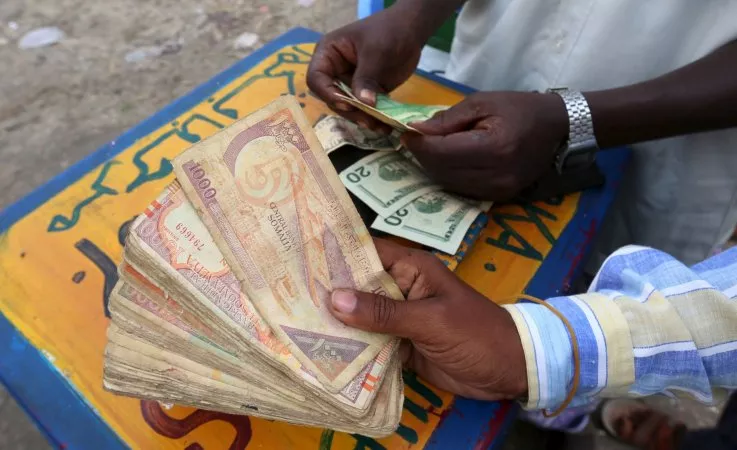The Somali Nation has been grappling with the menace of the infamous terror group, Al-Shabaab, for many years. This extremist organization has brought havoc to the country with its indiscriminate acts of violence and terror. The President of Somalia, Hassan Sheikh Mohamud, has taken a steadfast resolve to put an end to the atrocities of this group and dismantle their grip on the nation. In order to achieve this, the President has launched a comprehensive war on Al-Shabaab that encompasses military, financial and psychological tactics. The focus of this article will be on the financial front of this war, which has proved to be a highly effective and successful strategy in the fight against Al-Shabaab.
The Somali administration has instituted stringent sanctions against the khawarij terrorist organization known as al-Shabaab, in a multifront offensive that encompasses military, financial, and psychological strategies. The financial front of this campaign has proven to be one of its most efficacious and successful facets, with one of the paramount highlights being the sequestration of more than 250 bank accounts associated with al-Shabaab, worth a substantial sum.
A crucial tactic in the financial conflict against al-Shabaab has been the identification and disruption of the group’s revenue streams. Al-Shabaab relies heavily on extortions, taxes imposed on commerce and enterprises, and other illicit ventures to finance their operations. The government of Somalia has been working in close collaboration with the global community to track and neutralize these funding channels, making it increasingly challenging for al-Shabaab to carry out their violent endeavours. This has entailed the freezing of the group’s bank accounts, which has had a substantial impact on their capacity to generate income.
Similarly, Al-Shabaab had established illegal courts in various parts of the country. They used these courts to summon individuals who failed to pay the extortion fees they imposed. This illegal activity generated a significant source of revenue for the group, as they were able to collect large amounts of money through these fees. However, the government’s actions in destroying these courts and disrupting the group’s illegal revenue stream has likely had a major impact on their financial stability. This led to a decrease in the group’s financial resources, as they were no longer able to extort funds from the local population. The destruction of their illegal courts also disrupted their ability to operate and collect these funds, ultimately leading to a weakening of their financial position. This, in turn, impacted their ability to carry out operations and further their objectives.
Furthermore, the administration has also imposed strict regulations on the transfer of money and goods in and out of territories controlled by al-Shabaab. This has further impeded their ability to generate revenue and has had a debilitating effect on their operations. The sanctions have also made it more arduous for al-Shabaab to procure weapons, supplies, and other necessities critical to their survival.
The devastating impact of these sanctions on al-Shabaab has been substantial. The group has been compelled to scale back their operations and reduce the number of their fighters, facilitating the government and its allies to gain the upper hand. The sanctions have also had a psychological impact on the group, leading to a decline in morale and hampering their capacity to recruit new fighters.
The financial sanctions imposed on al-Shabaab by the government of Somalia, including the sequestration of over 250 bank accounts worth millions, are having a considerable impact on the group’s ability to carry out their violent activities. This strategy, in conjunction with the other tactics employed in the comprehensive war on al-Shabaab, is making it easier for the government and its allies to bring an end to the terror and violence that has plagued the country for so long.
By Abdiqani Abdullahi





